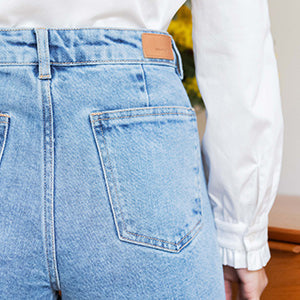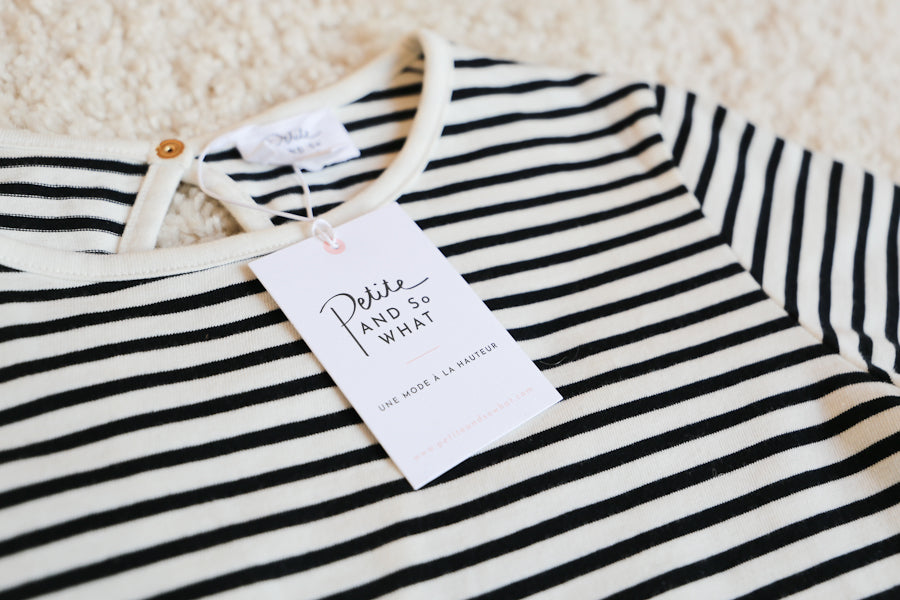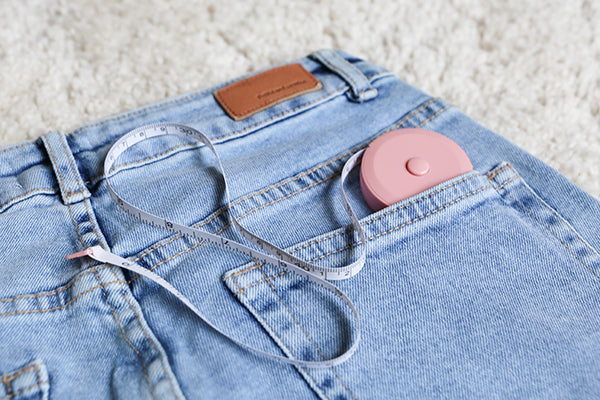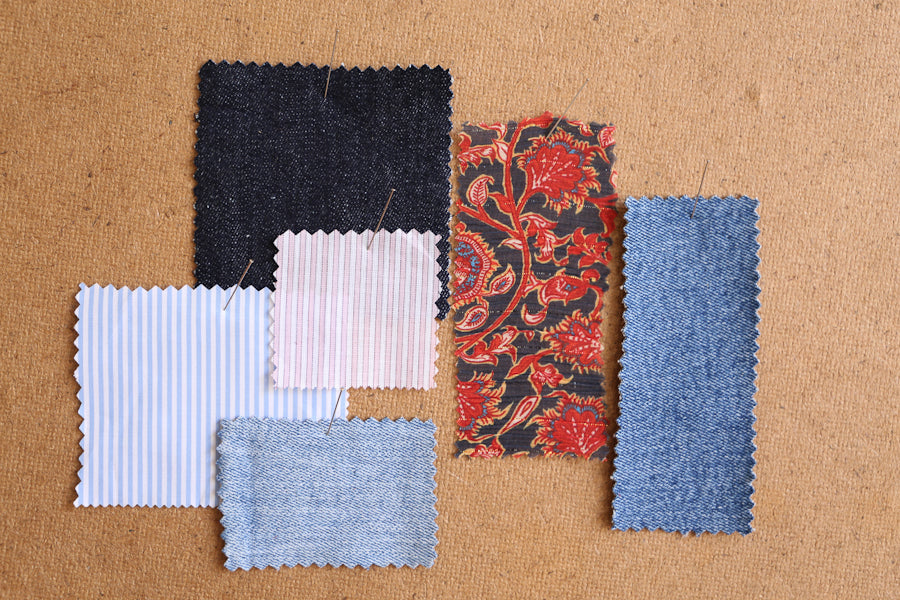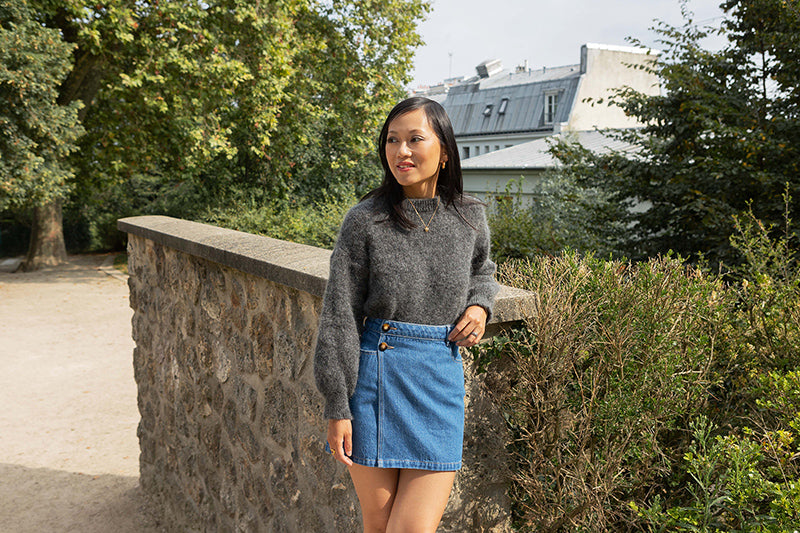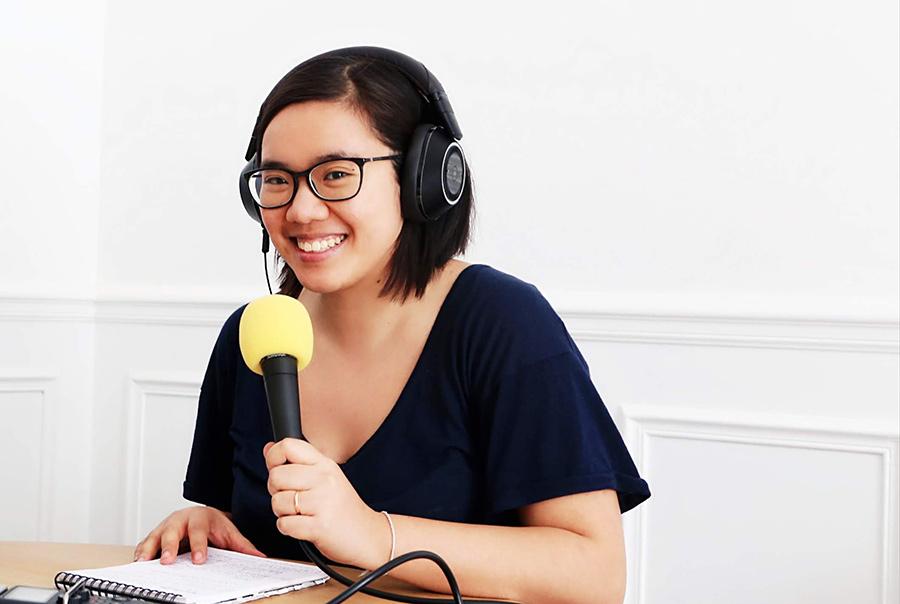Today, it's my pleasure to introduce Mélanie Hong, a petite 1m56, ex-employment lawyer, who's now turned to podcasting. I met Mélanie last year thanks toher podcast Melting Pot. I was a guest on her 13th episode. We talked a lot together and I really liked her background and personality. Mélanie is a fighter: she believes in her dreams and does everything she can to make them come true. Mélanie is a wonderful example of success, which I'm sure will inspire you.
We're often perfectionists, or afraid of taking the plunge. My advice is to do it, even if it's not good. You'll have time to improve. Whereas if you don't go for it, it'll be an unfinished project of which you'll be even less proud than an even imperfect podcast.
Can you start by introducing yourself?
I am a 31 year old mother. I'm French of Vietnamese and Chinese descent. I used to be a lawyer and now I'm an entrepreneur. I've set up a podcast production and training company.
You were a lawyer before starting your own business. Can you tell us more about your background?
I've always been a good student. I've always attached great importance to my studies. My parents, immigrants, wanted me to have a good situation. When I say "good situation", I'm thinking of prestigious professions that allow us to earn a good living: lawyer, doctor, engineer... So I decided to take a general scientific baccalaureate. But I didn't know what to do afterwards. I loved art, music, reading a lot and drawing. I wanted to be a writer or a designer. But it was just a dream, it wasn't a profession I had in mind.
As a result, my orientation followed a very pragmatic line of reasoning. I loved foreign languages, cultures, travelling and being independent. I've never really liked authority - I always wanted to be my own boss! I also wanted my parents to be proud of me. So I decided to become a diplomat. It was the best way to travel while doing a prestigious job. I had mapped out my entire career path in my head: first Sciences Po, then ENA. I took the Sciences Po entrance exam after my baccalauréat, and I was stunned. I didn't get in, and I didn't have a plan B. So I enrolled at the ENA. So I enrolled in history and law faculties, the two streams that allowed parallel admission to the second year of Sciences Po.
So I went to law school and started to love the law. Theory wasn't my favorite thing. But in my third year, I was lucky enough to go on an Erasmus exchange to Sweden. Over there, there were 20 of us per course, and we did practical work all year round (mainly mock trials). It was a far cry from the amphitheaters and lectures we'd had in France. It was at this point that I really started to like the law. When I came back from Sweden, it was obvious. I wanted to become a lawyer! So I passed the bar exam and went to law school. Then I joined an Anglo-Saxon law firm.
After four years, you left the Bar. It was a real struggle for you. How did you come to make such a decision?
In the big Parisian law firms, you rise through the ranks very quickly. I had my career path mapped out for me. I loved what I was doing, I was fulfilled. The assignments were varied: I was involved in written and oral consultations, as well as pleadings. I was learning to manage. Every year, I improved my skills. But I worked a lot. I didn't count the hours or the nights I spent working. I had no time for myself. I was exhausted. And I'm someone who gets bored quickly. After a while, I felt like I was doing the same thing over and over again. I got married and I couldn't imagine having children with my career.
After three years, I started to be regularly headhunted by recruitment agencies. I received a lot of job offers from external agencies. To every offer, I'd say "no". I was even offered my dream job: associate in a sunny firm in the South of France. It was an incredible opportunity for a lawyer with only 3 years' experience, yet it didn't sound like a dream to me. I hesitated but turned it down. It was at this point that I really started to question my future and think about my priorities. If I turned down such an offer, I couldn't go on like that.
In 2016, I knew I was going to stop. But I didn't know what to do ...
In early 2017, I took a skills assessment. It made me realize that I could take back control of my schedule and my priorities. I was originally convinced that I couldn't sacrifice 10 years of my life without having a plan behind it. I thought I absolutely had to find "my talent". Added to this were a number of other difficulties. As a freelancer, I couldn't collect unemployment. And I also had to resign from the bar and end my career as a lawyer. I managed to take a step back and realize that none of this was serious. I found a food job, a permanent contract as a legal journalist to keep my finances afloat. Then I quit. Without knowing what I was going to do next. I was so excited and so happy. I gave myself a year to find my way.
What courage, Mélanie! So, how did this year go?
I had a year ahead of me to explore everything I'd never dared to do. I signed up for two drawing classes, I went to afterwork and workshop after workshop, I visited Paris. At last, I was taking time for myself. My husband told me he'd never seen so little of me. I was having the time of my life, meeting lots of people and learning a lot. I was listening to a lot of podcasts at the time.
In February 2018, I was inspired to create my podcast. I wasn't thinking of making a living out of it at all. I was convinced at the time that I was going to be a cartoonist. I had several podcast ideas in mind. The first was to interview responsible entrepreneurs: a vegan pastry chef, a responsible fashion designer and so on. I wanted to call it "Les Nouveaux Utopistes". The idea behind the second podcast was to re-humanize migrants. I wanted people to change their view of migrants, by allowing them to tell their stories. But this wasn't feasible: often, they didn't speak French well and weren't ready to reveal themselves. So I decided to interview immigrants who had become French, or the children of immigrants. That's how "Melting Pot" was born.
I spent several months doing interviews and recording podcasts, but I didn't dare release them. I was afraid! After a while, I had 7, I had to release them. I released the first episode on July 14, 2018, the national holiday. I had 50 listens. It wasn't huge, but I hadn't told anyone about it and people were listening to me. I was doing something I liked, and that was the main thing. Despite my shyness, I realized that I loved meeting people and getting close to them. So I asked myself if I didn't want to become a journalist? But I had to go back to school, and I didn't like the idea of having a subject imposed on me. I wanted to be free to interview whoever I wanted, whenever I wanted. So I turned to podcasting. In the end, podcasting brings together everything I love: conveying a message that makes sense, doing something creative and creating a work that lasts over time.
Today, you're a podcast specialist. You have 4 podcasts. How do you see your podcast career?
In early 2019, I joined a radio school that trains in sound creation (Transmission) and since August 2019, I've been training in podcast creation via a company I created: Bonjour Podcast. Today, I organize group training workshops andofferindividualcoaching to individuals and freelance professionals to help them create or improve their podcasts. Since 2020, I've also been offering podcast production services to businesses, and I'm planning even more new offers for podcasters between now and the end of the year.
I'm really happy with the way things are going. I've given myself a year to make a decent living out of it!
Well done on your journey! What advice would you give to people who want to start podcasting?
First of all, I think you need to know why you want to create a podcast. Is it to meet people? Is it a hobby? It's never trivial, and you need to know why. Because that determines a lot of things (the editorial line, your motivation, the time you spend on it, etc.).
My advice is not to compare yourself to others!
Then, you have to dare to take the plunge even if you're not ready, and even more so if you're afraid! We're often perfectionists, or afraid of taking the plunge. My advice is to do it, even if it's not good. You'll have time to improve. On the other hand, if you don't go for it, it'll be an unfinished project of which you'll be even less proud than an even imperfect podcast.
A few questions to get to know you better
Your motto?
In fact, I've got lots of them. My favorites: "Have no regrets", "Always be true to yourself" and "Always be kind to others".
Your last read?
I don't have time at the moment, so I read very little. I recently bought the book "Insoutenable Paradis" by Grégory Pouy , the creator of Vlan! a podcast I really like. It's a book that makes us think about tomorrow's society. How can we make it more respectful, more ecological and more harmonious?
What's your favorite food?
It has to be a Vietnamese dish: ban cuon or pho.
The outfit that makes you feel good?
In jeans and a tee shirt.
Your favorite Petite and So What piece?
What's your latest favorite?
Alter eco dark chocolate passion fruit bar!
Thank you Mélanie! I wish you all the best for the future!

